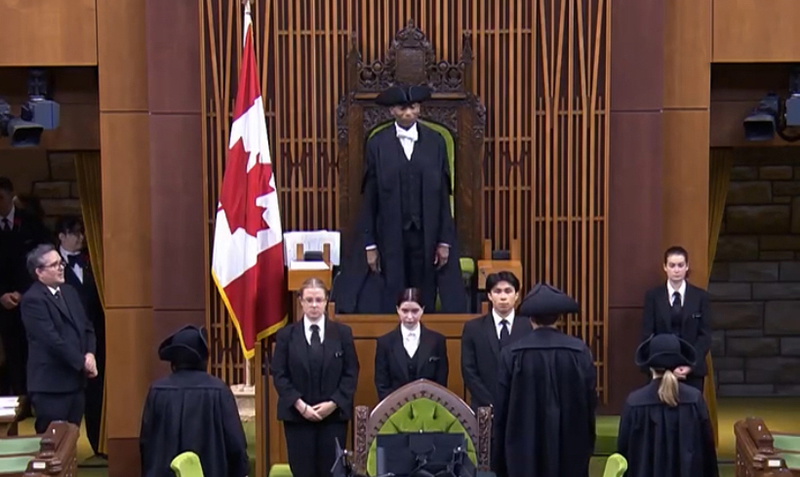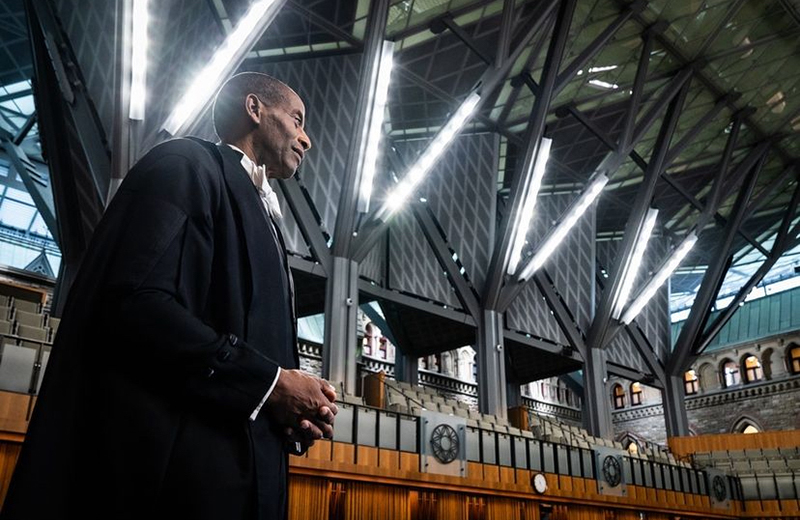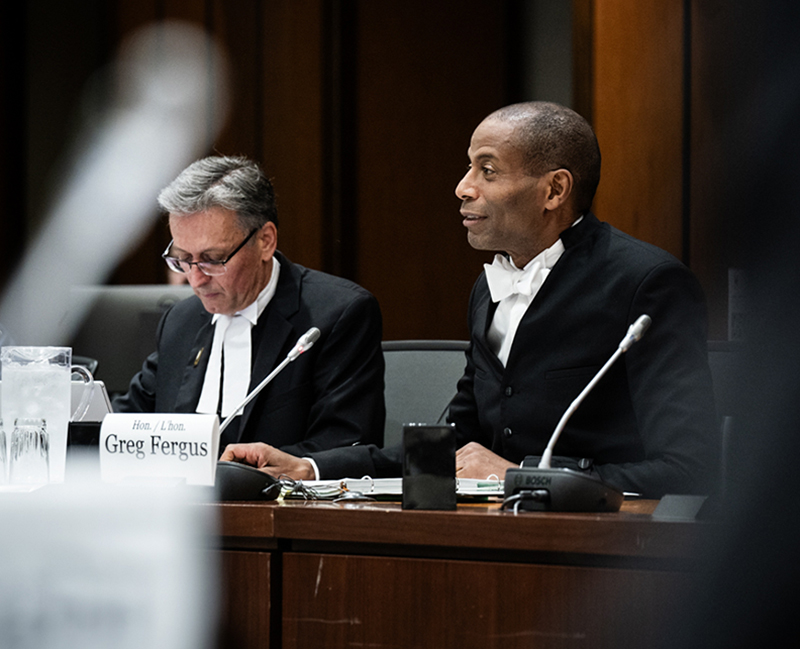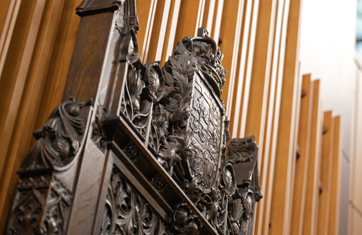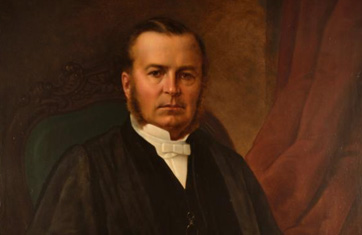Role of the Speaker
The Speaker of the House of Commons has several roles:
- preside over proceedings in the Chamber;
- oversee the administration of the House of Commons; and
- carry out diplomatic and ceremonial duties.
Presiding over the House of Commons
The Speaker’s procedural role is to:
- apply the procedural rules of the House of Commons in a way that is fair for all Members of Parliament and political parties;
- maintain order in the House; and
- defend the rights and privileges of Members, including their freedom of speech.
To guide the House as it carries out its work, the Speaker:
- calls out each item on the daily order of business;
- reads out the text of motions that are presented to the House;
- maintains order and decorum during debate by allowing Members to speak one at a time (this is called “recognizing” a Member); and
- can turn off the microphones of all Members by standing up from the Speaker’s Chair (this is called “bringing the House to order”).
When Members finish debating a motion, the Speaker calls on the House to make a decision, or vote.
The Speaker also decides whether changes to a bill or a motion (called amendments) proposed by Members are procedurally in order.
Every day, time is set aside for the opposition to ask the Government questions regarding its policies and actions. This is called Question Period. An important role for the Speaker is to make sure that Question Period is conducted in a civil manner, that questions and answers are kept within a set time frame, and that both questions and responses can be heard.
At the Government’s request—and if the Speaker believes it necessary—the Speaker can also call Members to the House when it is not scheduled to sit.
Members can also ask the Speaker to consider:
- points of order, when Members argue that rules or procedures are not being followed;
- questions of privilege, when Members believe that something is interfering with the House’s ability to carry out its functions or with their ability to carry out their individual duties as Members of Parliament; and
- requests for emergency debates, in cases where a Member brings forward a matter that they believe requires urgent attention.
If a Member does not follow the rules of parliamentary procedure in the House, the Speaker can decide that this Member’s action is “out of order.”
For the House to properly function, Members must trust that the Speaker is fair and does not favour one political party over another. That is why the Speaker:
- never participates in debates;
- votes only when there is a tie; and
- may not be criticized in debate or by any means except by way of a substantive motion.
Overseeing the Administration of the House of Commons
The Speaker is the head of the House of Commons Administration and serves as chair of the group that oversees the House of Commons’ administration and finances. This group is called the Board of Internal Economy and is made up of Members of Parliament.
Part of the Board’s job is to approve the House’s annual spending estimates. The Speaker then presents the budget to the Treasury Board along with the Government’s departmental spending estimates.
The Speaker’s administrative duties include tabling (or presenting) certain documents and reports in the House as required by law on behalf of designated officers of Parliament and other entities. These could be documents from:
- the Board of Internal Economy;
- the Canadian Human Rights Commission;
- the Auditor General;
- the Chief Electoral Officer;
- the Commissioner of Official Languages;
- the Information Commissioner; and
- the Privacy Commissioner.
Carrying out diplomatic and ceremonial duties
The Speaker also has diplomatic and ceremonial duties.
Diplomatic duties
The Speaker of the House of Commons is fifth in the Order of Precedence of Canada starting with the Governor General, the Prime Minister, the Chief Justice of the Supreme Court, and the Speaker of the Senate.
In this role, the Speaker receives visiting heads of state or heads of government to the Parliament of Canada and serves as host to foreign Speakers when they visit Canada.
The Speaker interacts with the diplomatic corps to maintain positive relations with parliaments and diplomatic missions from around the world. The Speaker also leads delegations and travels abroad on behalf of the House of Commons.
The Speaker of the House of Commons and the Speaker of the Senate are both honorary chairs of all of the parliamentary associations of the Parliament of Canada.
Ceremonial duties
When the House of Commons is in session, the day begins with the Speaker’s Parade, a procession made up of the Sergeant-at-Arms, carrying the Mace (the symbol of the Speaker’s authority), followed by the Speaker and Table Officers.
When the procession enters the Chamber, Members stand while the Speaker takes their seat and the Sergeant-at-Arms places the Mace on the Table in front of the Speaker’s Chair.
The Speaker starts by seeing if there is quorum in the Chamber. A quorum is the minimum number of Members needed to start proceedings (20 Members, including the Speaker, are required for the House to conduct business). If there is quorum, the Speaker then reads a prayer and the sitting begins.
The Speaker is also part of a procession when the House is called to the Senate, for example when the House must appear before the monarch or Governor General in the Senate Chamber at the beginning of a new Parliament, or when a bill receives royal assent by ceremony, the final step before it becomes law.
Other Chair Occupants
When the Speaker cannot be in the Chamber, one of three other presiding officers will step in and take their place. These Chair occupants are:
- the Deputy Speaker and Chair of Committees of the Whole;
- the Assistant Deputy Speaker and Deputy Chair of Committees of the Whole; and
- the Assistant Deputy Speaker and Assistant Deputy Chair of Committees of the Whole.
